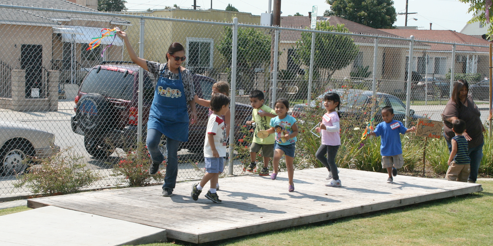CommentsCOUNTY WATCH--On Tuesday, May 3, LA County’s Supervisors will consider a ballot measure that could create parks and recreation options for communities that need them most. It’s a once-in-a-generation opportunity to improve a long-standing injustice against low-income communities of color, which have been left behind in the allocation of these resources.
At issue is the renewal of Prop A, which has generated $54 million a year since 1994 to create new park space and recreational facilities, and to repair existing infrastructure. Prop A is sunsetting in 2019 and for the past 12 years, it has been a vital resource for neighborhood playgrounds, senior centers, and sports fields; open space protection; and critical upgrades to regional attractions like the world-famous Hollywood Bowl and the Natural History Museum.
When the Supervisors consider the ballot measure to renew Prop A on Tuesday, they also will hear results of the Countywide Park Needs Assessment, undertaken to inform how future revenue is allocated. This assessment took inventory of the park and recreation infrastructure in every city and unincorporated area in LA County. The level of resident engagement was exemplary—unlike anything the county has undertaken—and led to pinpointing the location, scope, and scale of the tremendous need for facilities everywhere—most especially in poor communities of color.
Parks, playgrounds and other recreation facilities are so important because they provide crucial opportunities for gathering with neighbors, engaging in physical activity, enjoying nature, and relieving stress. A growing body of research not only confirms the important health and social benefits of parks, recreation facilities and programming, but confirms that their absence can undermine community health and quality of life.
Historically, this absence of parks and recreation facilities has most affected those living in low-income areas, and/or predominantly Latino or African-American neighborhoods in the U.S. Initially, it was racial and economic segregation that drove the inequities in infrastructure investment, as well as biased practices in planning, zoning, and real estate. In LA County in particular, parks have been low-priority on the political landscape; conservation efforts and funding have been focused outside the urban core in the Santa Monica Mountains and coastal areas; and Proposition 13 has had a devastating impact on local parks and recreation agencies.
The findings of the county’s Park Needs Assessment will likely be consistent with the greater body of research demonstrating that poor Latino and African-American communities have fewer, more congested, and poorer quality parks and recreation facilities, compared to their whiter, more affluent counterparts. These differences correlate with key indicators of health, including premature mortality from heart disease and diabetes, and the onset of inactivity-related chronic illness, like Type 2 diabetes, in ever-younger populations, including children and youth.
The results of the Park Needs Assessment will also deepen our current understanding of the extent of park and recreation deficits throughout the County, including the growing backlog of deferred maintenance that outpaces the budgetary capacity of most park and recreation departments.
In the absence of robust general fund allocations for parks and recreation that our cities and unincorporated areas so desperately need to create and maintain parks facilities and provide recreational programming at optimal levels, we’ve got to make the most of voter-approved, time-limited funding measures. The Supervisors’ decision about this ballot measure will determine whether LA County communities will get the boost they need to maintain park and recreation infrastructure already in place, and potentially add more.
In moving forward a measure to renew Prop A, the Supervisors have an unprecedented opportunity to affirmatively and intentionally address park disparities by designating a portion of the revenue to create parks and recreation infrastructure where little to none currently exists. In so doing, the voters of Los Angeles County will be primed to take an important step towards eliminating inequities, improving opportunities for physical activity, and increasing public safety in the County’s most vulnerable communities.
It’s a chance to do the right thing, at the right time, and in the right places.
(Manal J. Aboelata is Managing Director at Prevention Institute, a public health nonprofit. Elva Yañez is Director of Health Equity at Prevention Institute and a California State Park and Recreation Commissioner. Contact them at the Prevention Institute.)
















